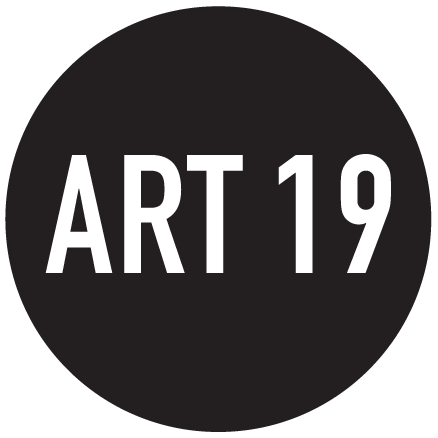Frieze : Shilpa Gupta Memorializes the Language of Dissidents (by Jasmine Liu)
At Amant, New York, a survey of the artist's work commemorates the verse of poets censured by governments through sculpture and installations.
For the past few years, Shilpa Gupta has tried different variations on memorializing poets punished by governments for freely expressing themselves. Her best-known work, For, in Your Tongue, I Cannot Fit (2017–18), is a sound installation commemorating the verse of 100 historically and presently incarcerated writers. Speaking to the lonely and desperate plight of jailed poets everywhere, the piece comprises 100 menacing metal spikes piercing sheets of paper on which are typed excerpts of poems as well as the years in which each of its writers was detained. Above each spike hangs a hollowed-out microphone retrofitted with a speaker playing a recording of each poet’s work being read or sung in its language of origin. Sometimes individual, sometimes in unison, the orations furnish a striking sonic representation of the persistence of poetry notwithstanding extreme repression.
Shilpa Gupta, ‘I did not tell you what I saw, but only what I dreamt’, 2023, installation view. Courtesy: the artist and Amant, photograph: Sebastian Bach.
Offering a survey of 12 works capturing Gupta’s practice over the past 15 years, ‘I Did Not Tell You What I Saw, Only What I Dreamed’ at Amant in New York features three further works exploring this same theme. (A fourth, Untitled (Spoken Poem in a Bottle), also from 2018, is on display in a concurrent show of the artist’s work at Tanya Bonakdar Gallery.) The rest are works that question charged signifiers of nationality like surnames, borders, and stars.
In one new untitled piece from this year, Gupta dangles a lightbulb and a reverse-wired microphone from opposite ends of a long, rotating bar. Serving as a speaker, the microphone projects the artist’s voice as she reads out the names of 100 poets and the years in which they were detained. Limited to reciting basic archival facts about the treatment of these writers at the hands of the state, Gupta’s narration is spare. We learn that some poets were detained year after year, some are still incarcerated, some were exiled or executed, and some disappeared. (In the case of the fourth century Muslim poet Imadaddin Nasimi, Gupta reads soberly: ‘Skinned alive.’) Set against a soundtrack of prayerful song, her voice becomes a meditative mantra. The lightbulb, the sole source of illumination in an otherwise dark room, conveys in its humility the solitude of the censured poet, while also gesturing to their tenacity and luminosity.
Shilpa Gupta, Stars on Flags of the World, 2012/2023. Courtesy: the artist and Amant, photograph: Sebastian Bach
Comparatively less austere, her installation in the following room, For, in Your Tongue, I Cannot Fit (2023), bathes visitors in a warm glow cast by dozens of lightbulbs hanging in wooden bookcases. Upon the shelves, slim cast-gunmetal volumes bear excerpts of poetry on their covers and, on their spines, the names of the authors, including Kim Chi-Ha, Mahmoud Darwish, Allen Ginsberg and Liu Xiaobo. The same martyred fragments violently pierced in the artist’s earlier piece are here consecrated in metal alloy. Several lines etched into the covers enjoin readers to speak out or carry revolutionary calls to action; others reference the harsh political circumstances under which their writers live; still others are aphoristic, lyrical, or naturalistic. Visitors can meander into the middle of the four, orthogonally arranged, tall wooden bookshelves and become enveloped in books, poetry and light.
Shilpa Gupta, A liquid, the Mouth Froze, 2018. Courtesy: the artist and Amant; photograph: Sebastian Bach.
The most minimalist of Gupta’s works on this theme is A Liquid, the Mouth Froze (2018), a small cast-gunmetal sculpture of the inside of a mouth that arrests, even fossilizes, speech. A text displayed vertically beside the cast reads: ‘I was walking on the street. A car stopped, a few men stepped out, and pushed into my mouth a liquid. The mouth froze.’ The piece seems to embody the punishing trade-off poets have often had to make: freedom of expression bought at the precious cost of personal liberty or even life itself. In works old and new throughout the survey, Gupta elevates universal, humanistic desires that have insisted on finding ways to subvert and overspill state power.
Article published on https://www.frieze.com




